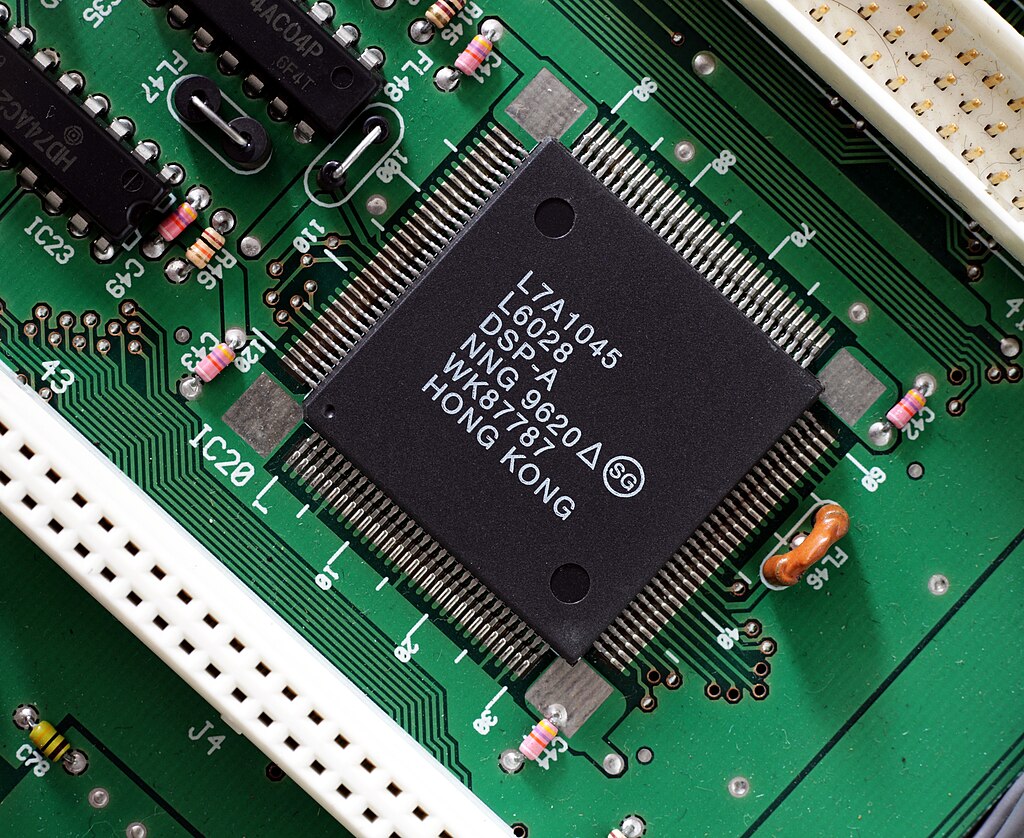The Biden administration has added over 25 entities, including Chinese AI firm Zhipu AI and chipmaker Sophgo, to the U.S. restricted trade list. These companies, along with two Singapore-based firms, now face strict export licensing rules, generally denied, as part of efforts to curb China's military modernization and AI advancements.
Zhipu AI, backed by Alibaba and Tencent, was targeted for advancing China's military through AI research. Sophgo was blacklisted after a TSMC-produced chip it ordered was found in Huawei’s AI system. Huawei, on the Entity List since 2019, remains central to China’s AI chip ambitions. Sophgo denied any ties to Huawei.
The U.S. Commerce Department also tightened semiconductor export rules, targeting chips at 14 or 16 nanometer nodes or below used in AI. These controls affect chipmakers like TSMC and Samsung, requiring due diligence to prevent diversion to restricted entities. Memory chips like DRAM, essential for AI processors, also face stricter export controls, impacting companies like China's Changxin Memory Technologies (CXMT).
The latest measures reflect heightened U.S. efforts to limit China's access to advanced technology. The government cited risks to national security and potential military applications as reasons for the restrictions. Many blacklisted entities, including Sophgo units, were flagged for aiding China’s weapons development and high-tech surveillance.
The new rules also impose tighter oversight on chip factories and packaging companies. Commerce official Alan Estevez emphasized holding foundries accountable to prevent chips from reaching banned entities.
The U.S. continues to expand export restrictions on advanced AI and chip technology to address national security concerns and global tech competition.



 Tencent Shares Slide After WeChat Restricts YuanBao AI Promotional Links
Tencent Shares Slide After WeChat Restricts YuanBao AI Promotional Links  Supreme Court Signals Skepticism Toward Hawaii Handgun Carry Law
Supreme Court Signals Skepticism Toward Hawaii Handgun Carry Law  Elon Musk’s Empire: SpaceX, Tesla, and xAI Merger Talks Spark Investor Debate
Elon Musk’s Empire: SpaceX, Tesla, and xAI Merger Talks Spark Investor Debate  AMD Shares Slide Despite Earnings Beat as Cautious Revenue Outlook Weighs on Stock
AMD Shares Slide Despite Earnings Beat as Cautious Revenue Outlook Weighs on Stock  Missouri Judge Dismisses Lawsuit Challenging Starbucks’ Diversity and Inclusion Policies
Missouri Judge Dismisses Lawsuit Challenging Starbucks’ Diversity and Inclusion Policies  Australia’s December Trade Surplus Expands but Falls Short of Expectations
Australia’s December Trade Surplus Expands but Falls Short of Expectations  U.S. Lawmakers to Review Unredacted Jeffrey Epstein DOJ Files Starting Monday
U.S. Lawmakers to Review Unredacted Jeffrey Epstein DOJ Files Starting Monday  Court Allows Expert Testimony Linking Johnson & Johnson Talc Products to Ovarian Cancer
Court Allows Expert Testimony Linking Johnson & Johnson Talc Products to Ovarian Cancer  Federal Judge Restores Funding for Gateway Rail Tunnel Project
Federal Judge Restores Funding for Gateway Rail Tunnel Project  Federal Judge Rules Trump Administration Unlawfully Halted EV Charger Funding
Federal Judge Rules Trump Administration Unlawfully Halted EV Charger Funding  SpaceX Seeks FCC Approval for Massive Solar-Powered Satellite Network to Support AI Data Centers
SpaceX Seeks FCC Approval for Massive Solar-Powered Satellite Network to Support AI Data Centers  U.S.-India Trade Framework Signals Major Shift in Tariffs, Energy, and Supply Chains
U.S.-India Trade Framework Signals Major Shift in Tariffs, Energy, and Supply Chains  Dollar Steadies Ahead of ECB and BoE Decisions as Markets Turn Risk-Off
Dollar Steadies Ahead of ECB and BoE Decisions as Markets Turn Risk-Off  Asian Markets Slip as AI Spending Fears Shake Tech, Wall Street Futures Rebound
Asian Markets Slip as AI Spending Fears Shake Tech, Wall Street Futures Rebound  Federal Judge Signals Possible Dismissal of xAI Lawsuit Against OpenAI
Federal Judge Signals Possible Dismissal of xAI Lawsuit Against OpenAI  Dollar Near Two-Week High as Stock Rout, AI Concerns and Global Events Drive Market Volatility
Dollar Near Two-Week High as Stock Rout, AI Concerns and Global Events Drive Market Volatility  Nvidia Confirms Major OpenAI Investment Amid AI Funding Race
Nvidia Confirms Major OpenAI Investment Amid AI Funding Race 





























